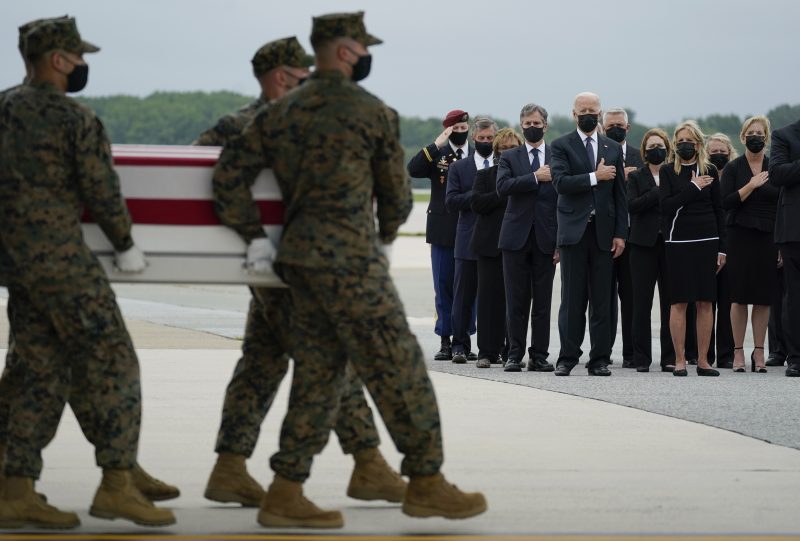
Debunked: US Military Review Unveils Truth About Marines’ Encounter with Kabul Bomber
The recent events in Afghanistan have raised many questions about the actions taken by the U.S. military in response to the crisis. One particular incident that has come under scrutiny is the Kabul airport bombing that occurred on August 26, 2021, which claimed the lives of 13 U.S. service members and over 170 Afghan civilians.
A review conducted by the U.S. military has disputed claims that the Marines had the Kabul bomber in their sights before the attack took place. The review concluded that there was no evidence to support the assertion that the Marines had identified the suicide bomber and could have prevented the tragic events that unfolded that day.
This finding has sparked controversy and debate among military officials, lawmakers, and the public. Some argue that the U.S. military missed a critical opportunity to thwart the attack and protect the lives of those caught in the line of fire. Others defend the Marines’ actions, stating that the chaos and confusion of the situation made it impossible to accurately identify the threat in time.
In response to the review’s findings, the U.S. military has pledged to reevaluate its security protocols and intelligence-gathering methods to prevent similar incidents from occurring in the future. The military has also emphasized the need for improved communication and coordination among different branches and units to enhance overall security measures in high-risk situations.
The aftermath of the Kabul airport bombing has highlighted the challenges and complexities of operating in a volatile and dangerous environment such as Afghanistan. The U.S. military faces constant threats from terrorist organizations and insurgents, making it difficult to anticipate and prevent every potential attack.
Moving forward, it is crucial for the U.S. military to learn from the mistakes and shortcomings exposed by the Kabul bombing incident. By implementing more robust security measures, improving intelligence-sharing practices, and enhancing coordination among different units, the military can better protect its personnel and civilians in conflict zones.
Ultimately, the lessons learned from the Kabul airport bombing must serve as a catalyst for positive change and improvement within the U.S. military. Only by acknowledging and addressing the vulnerabilities and gaps in security can the military effectively fulfill its mission to safeguard the nation and its interests in an increasingly volatile world.
